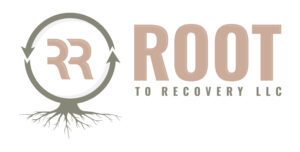 The correlation between mental health and substance abuse cannot be denied. Different types of substance abuse exist, and the most common one is alcohol. Alcohol is the most widely used substance, and it can have a wide range of mental health risks for those who use it.
The correlation between mental health and substance abuse cannot be denied. Different types of substance abuse exist, and the most common one is alcohol. Alcohol is the most widely used substance, and it can have a wide range of mental health risks for those who use it.
People who suffer from depression, anxiety, or other mental health issues are more likely to turn to alcohol as a way to cope with their problems. This leads to an increased risk of addiction and further mental health complications.
The Connection Between Mental Illness And Substance Abuse
A co-occurring disorder or dual diagnosis occurs when you have both a mental illness, such as bipolar disorder, depression or anxiety, and a substance abuse problem. It’s never easy to deal with substance abuse, drug addiction, and alcoholism, and it’s even more difficult when you’re also dealing with mental health issues.
Both mental illness and substance abuse have their own unique symptoms in co-occurring disorders, which may interfere with your ability to perform at work or school, maintain a stable home life, deal with life’s difficulties, and relate to others. To make matters worse, the co-occurring disorders interact with one another. When a mental health issue is left untreated, the substance abuse problem usually worsens. And when there is an increase in alcohol or drug abuse, there is usually an increase in mental health problems as well.
What’s The Cause of Mental Illness and Substance Abuse?
Drug and alcohol addiction is a mental disorder. It is caused by a series of biological, behavioral, and environmental elements, and leads to structural and functional changes in the brain. Addiction (also referred to as substance abuse) harms an individual’s ability to perform well at school, or work, maintain healthy relationships, and handle stressful situations like other mental illnesses do.
While this is common knowledge, it is only one side of the coin. The link between mental illness and substance abuse is more complicated than most of us realize. Here are some significant links between mental illness and substance abuse:
Untreated mental health problems increase the likelihood of substance abuse.
Individuals suffering from anxiety, ADD, depression, or BPD frequently turn to substance abuse to alleviate their symptoms. While the substance may provide instant relief, it can worsen symptoms over time, leading to more substance abuse and an harmful cycle of mental disorders.
Drug and alcohol abuse can lead to depression, anxiety, and other mental health issues.
It’s a myth that everyone who consumes drugs will cultivate mental health problems, but if someone has previously been exposed to mental disorders, the symptoms can be more apparent and worse. Sometimes, simply removing alcohol and drugs from the body is enough to alleviate symptoms of anxiety or depression. However, substance abuse can alter brain chemistry in the long run.
Some mental health issues share symptoms with substance abuse.
Anti-depressants and alcohol can exacerbate depression symptoms. Sadness, and feelings of lethargy are among them. Continuous use of drugs can cause irreversible changes in the chemistry of the brain. Some stimulants, such as cocaine, can result in drug-induced psychosis characterized by hallucinations, and delusions which are key symptoms of schizophrenia.
Many people suffer from both mental illness and substance abuse disorders.
According to the National Survey on Drug Use and Health, 9.2 million adults experienced substance abuse along with some mental health or behavioral disorder issues. Treatment or therapy alone cannot focus on one disorder; it has to address both in order to provide the best results.
Both mental illnesses and substance abuse disorders can be treated.
While there is no acute treatment for mental illness or substance abuse, they can be treated. If a person suffers from a mental illness, a substance abuse, or both, various treatment options can end in long-term and effective management of symptoms.
Medication and psychotherapies are frequently combined to provide the most effective cure. Some individuals respond immediately to treatment while others must try various treatments before finding one that fits their needs.
The Proper Treatment Starts With A Correct Diagnosis.
You don’t have to struggle with substance abuse or other mental health issues alone – seek help. Qualified healthcare professionals provide individuals with the right tools and strategies to recover from substance abuse, mental illness, or both. At Root to Recovery we provide professional counseling and focus on empowering individuals to gain clarity on mental health issues to lead happier and successful lives.

